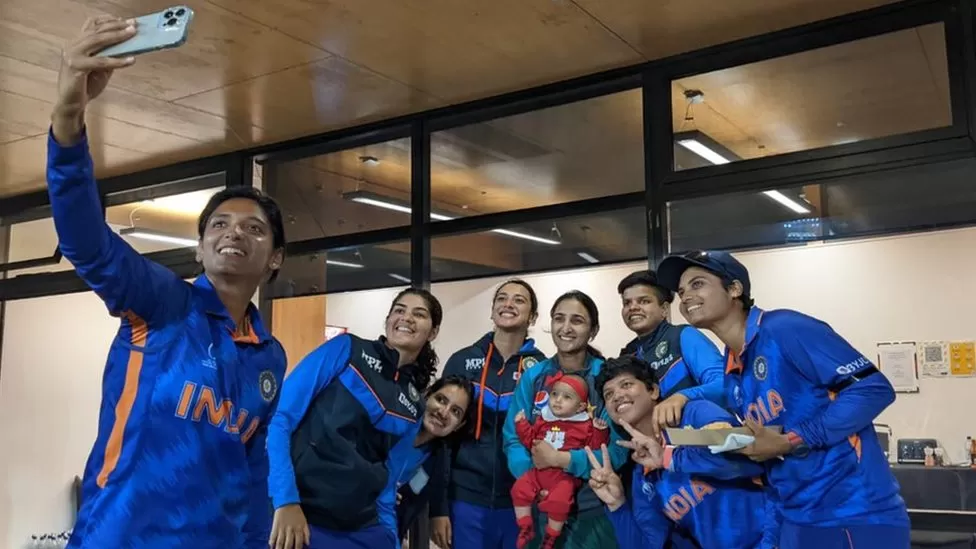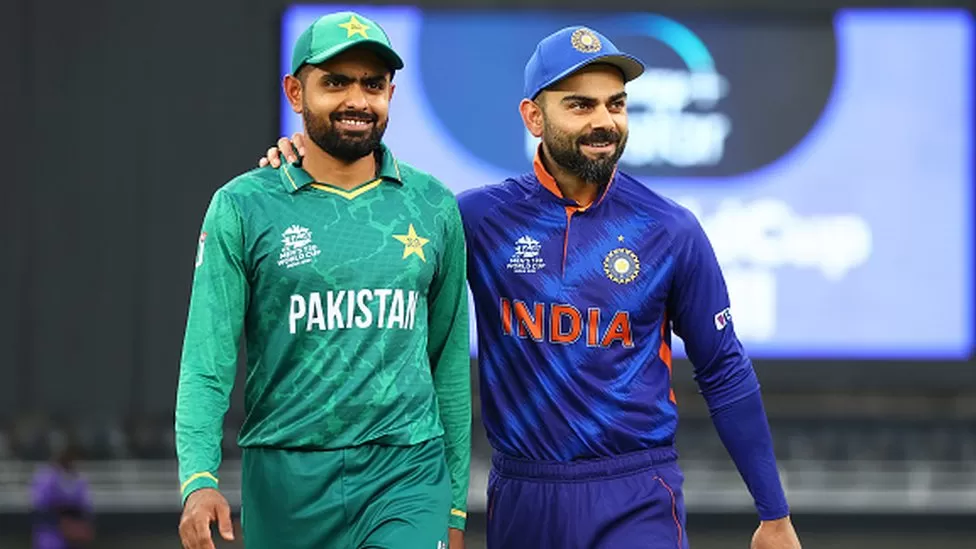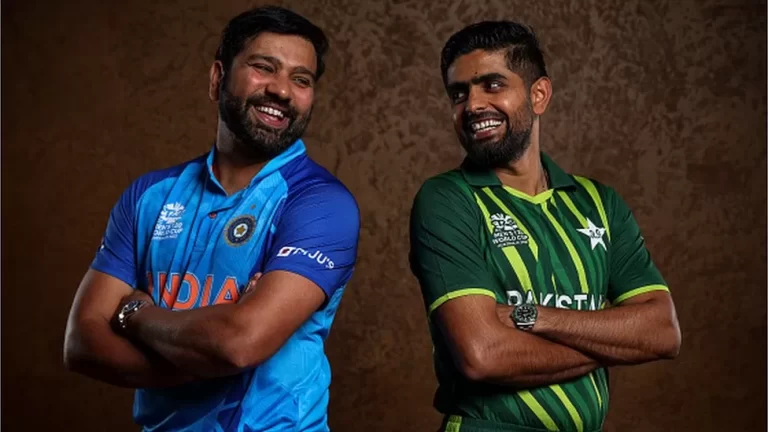Whenever India and Pakistan meet on a cricket pitch, the world witnesses another instalment of what is one of sports' most fiercely contested rivalries.
And when the two meet at a World Cup, as they will on 14 October in the western Indian state of Gujarat, anticipation is driven to feverish extremes. The nuclear-armed neighbours share a fraught relationship and have fought three wars since 1947, when India was partitioned after independence and Pakistan was created.
But despite the frosty relations, their cricketing history is replete with stories of love, respect and camaraderie between the two teams. Cricket's Asia Cup, which concluded last month, saw Pakistani bowler Shaheen Afridi give Indian fast bowler Jaspreet Bumrah a gift for his new born baby.
The gesture and the image won hearts of both Pakistani and Indian fans, as did another image that went viral in 2022: players of the Indian women's cricket team huddled to see Pakistani skipper Bismah Maroof's baby off the field. The photo melted hearts on the internet.
In the past, long periods of tensions between the South Asian countries have impacted the game, often meaning that the teams couldn't play each other. Cricketing ties between the two countries were suspended after the Kargil war in 1999.
In 2003, India toured Pakistan for the first time in nearly 15 years after a peace initiative by the former Indian Prime Minister Atal Bihari Vajpayee. But the relationship between the countries soured again after the 2008 Mumbai terror attacks in which 166 people were killed. India blamed Pakistan-based militant group Lashkar-e-Taiba for the attacks.
Since 2012, there hasn't been a bilateral series between the two cricketing greats. The countries have only faced each other at International Cricket Council events and the Asia Cup.
Yet, history shows that personal ties between the players have been always strong, dating as far back as 1947. That year, Fazal Mahmood, a player in the undivided nation's cricket team, was asked to attend a camp in the Indian city of Pune on 15 August, the day of the Partition.
He had to undertake a dangerous journey to Pune from his home city of Lahore, which had become part of Pakistan overnight, in the midst of Hindu-Muslim riots.

The camp was disbanded eventually due to the unrest, but what transpired between him and his Indian teammate CK Nayudu afterwards was historic.
“Cricketer CK Nayudu was travelling with me,” Mahmood wrote in his autobiography From Dusk to Dawn.
“I was spotted on the train by a couple of extremists who wanted to harm me, but CK Nayudu saved me from them. He pulled out his bat and told them to keep away from me.”
Nayudu is considered a cricketing pioneer in India. Mahmood, one of Pakistan's first bowling greats, went on to become a poster boy of the sport in the newly-formed country as it built its team from scratch after independence.
Subsequent decades have thrown up similar heart-warming stories of friendship. In 1987, the bilateral series between the countries coincided with the Indian festival of colours known as Holi. At that time, it was normal for the Pakistani team to travel to India for matches.
Former Indian wicketkeeper Kiran More, who was part of the national team then, recalled the exuberant celebrations.
“That year, the festival of Holi was memorable,” More told the BBC last month. “The entire hotel was full of colours that we splashed on each other. Even the swimming pool turned red. It was one of the best Holis ever.”
“The Pakistani players were super-excited,” he added. “The hotel tried to warn us and eventually fined us £500 ($614.3), which was a huge amount in 1987. The next day we played against each other as fierce competitors and the rivalry resumed.”
Despite the pause in tours, the friendships remain. Last year, when celebrated Indian spin bowler Bishan Singh Bedi travelled to Pakistan to visit a Sikh temple, his contemporaries from the Pakistan cricket team flocked to meet their old pal.
His former adversary, Pakistani coach Intikhab Alam, who had captained the country's team in the 1970s, even performed for Bedi, serenading him with the Louis Armstrong song When The Saints Go Marching In. Alam was born in India and moved to Pakistan after Partition. He returned to the land of his birth in 2004, becoming the first foreigner to coach a domestic Indian cricket team, Punjab.
That day, the two captains bonded over songs, food and memories.

Decades on, the goodwill continues among current players of the two teams. Former Indian team captain Virat Kohli and Pakistani skipper Babar Azam regularly shower praise on each other, with Kohli calling Azam one of the best batsmen in the world.
— CutC by bbc.com


